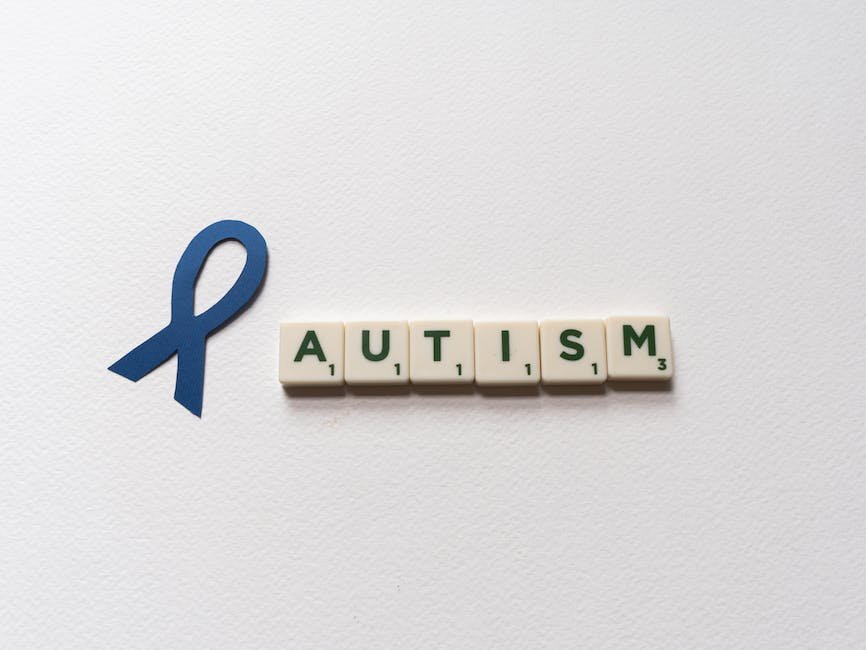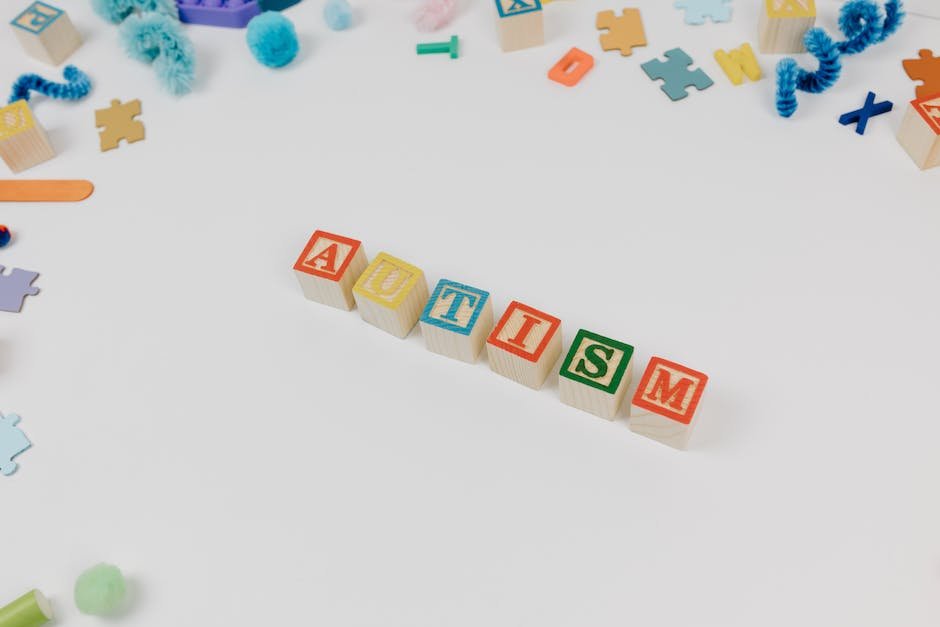
In the roller coaster ride that is parenthood, receiving an autism diagnosis for your child can seem like an unexpected turn that leaves you grappling with a whirlwind of emotions. Amidst these complex feelings, it’s essential to remember that this diagnosis doesn’t define your child’s potential or limit your family’s success in creating a fulfilling life. This piece aims to equip you with information and strategies as you navigate these new territories. From gaining a deeper understanding of Autism, dealing with initial emotions, transitioning into empowered advocacy, establishing a robust support system to devising long term strategies, each section is carefully crafted to aid you in your journey of embracing your child’s uniqueness and nurturing their persona.
Understanding Autism
Understanding Autism: A Guide for Parents and Caregivers
There’s often a cloud of misunderstanding and stereotype that swirls around the term ‘Autism.’ In a world that craves ‘normalcy,’ anything different is quickly labeled as an anomaly, an irregularity. But in all honesty, what is the true meaning of being ‘normal’? Isn’t it subjective, frequently redefined by social norms? Let’s explore the depths of Autism, a difference that isn’t a defect, but simply a diverse way of experiencing life.
Defining Autism
Autism, or Autism Spectrum Disorder (ASD), is a complex, neurological and developmental condition that typically originates in early childhood. It affects the way individuals interact and experience the world around them. General markers can include repetitive behaviors, distinctive strengths, and struggles in social interaction and communication. However, it’s called a ‘spectrum’ for a reason– there’s an enormous variety in challenges and strengths possessed by each person.
Looking Beyond the Stereotypes
People with Autism aren’t unsociable or unloving. On the contrary, they feel a wide range of emotions and have rich inner lives, just like everyone else. Sometimes, however, they may express their emotions differently, which can make their needs and feelings challenging to understand. Their way of communication might not always align with ‘typical’ standards, but remember, every dialog has two sides – for a successful conversation, each side must try to comprehend the other’s perspective.
Recognizing Strengths
Alongside difficulties, Autism also brings unique abilities. Some people with Autism have deep focus, meticulousness, and exceptional attention to details that can contribute remarkably in various fields. Some might have a wonderful knack for remembering specific details, while others might show surprising creativity or an affinity for understanding systems and processes. If nurtured positively, these traits can be true superpowers.
Understanding the Importance of Support
Living with Autism isn’t the end of the world, contrary to what some may think. With the right support and understanding, individuals with Autism can enjoy a fulfilling life. Positive reinforcement, specialized therapies, and consistent routine can boost the confidence, independence, and social skills of people with Autism.
Recognizing, appreciating, and supporting the differences in our loved ones with Autism is the first step towards creating an inclusive society. So, the answer to “What does it truly mean to have Autism?” may vary from person to person; after all, Autism isn’t a one-size-fits-all definition. It is a multitude of experiences, challenges met with strengths, and a slightly different interpretation of this complex world we all live in. Let’s remember to celebrate Autism for what it is – a different, not a lesser, view of the world.
After all, variety is the spice of life, and our loved ones with Autism are simply adding another vibrant color to our diverse human palette.

Dealing With the Initial Emotions
Processing Emotions Following Your Child’s Autism Diagnosis: Taking the Next Steps
The moments following your child’s autism diagnosis may bring a whirl of emotions, leaving you pondering about the future. Where the medical jargon ends, an uncharted path begins. Your mind will likely race with a plethora of thoughts, the questions may seem endless, and you might grapple with feelings of shock, disbelief, or even guilt. This emotional cyclone is natural and essential to understand. It’s the first step to embracing a new journey that is about to unfold.
Often, the initial stage following the diagnosis is coated in uneasiness. You may feel like you’ve been plunged into a dark abyss with no hint of the path that lies ahead. This feeling of vulnerability is only human and is a part of the larger process that challenges you to grow. Embracing these feelings may not be easy, but it is a vital part of the journey.
Acknowledging your emotions is the first, courageous step to healing and moving forward. Processing what you feel doesn’t entail rushing through or suppressing emotions. It’s about giving yourself the freedom to feel and express your emotions, whether it’s sorrow, confusion, or fear. As painful as it may be, try to face these feelings head-on.
There’s a popular saying that goes, “The only way out is through,” and it’s particularly appropriate in this context. Allow yourself to grieve, if that’s what you feel. Grant yourself permission to be afraid. Recognize that these feelings are not permanent. They are just stepping stones on your path to deeper understanding, acceptance, and love.
This challenging journey of acknowledging and processing emotions is not one you should traverse alone. Reach out to your partner, friend, family member, or a professional psychologist who can provide vital emotional support. Seeking a support network does not signify weakness, rather it’s a testament to your strength and love for your child.
Parenthood is a beautiful, yet sometimes tricky, adventure; it’s okay to look for a helping hand. Look for autism support groups in your region; it can be a game-changer. Connecting with other parents can give you a sense of belonging. You’re not alone on this journey, and exchanging experiences, tips, or just a good old friendly chat can be incredibly cathartic.
Inclusion is another aspect that cannot be overlooked. Celebrate your child’s uniqueness instead of trying to fit them in a particular mold. This may be a different journey than you initially anticipated, but it’s one that’s yours and your child’s nonetheless.
Remember the love you have for your child is stronger than any diagnosis. An autism diagnosis may seem overwhelming at first, but it doesn’t define your child. They are just as special, unique, and wonderful as they always have been. Love them, cherish them, and walk with them – every step of the way.
This new journey will indeed tax you, but together, with love and understanding, you and your child will grow stronger. When the clouds part, and the dust settles, you will see a world more vibrant and beautiful than before, painted with the unique strokes of your child’s limitless potential.

Advocacy and Empowerment
Empowering Parents: Becoming Powerful Advocates for Your Child
Parenting is in itself an overwhelming task, but when your child gets an autism diagnosis, it can be quite daunting. While it’s critical to understand and accept the diagnosis, it’s equally vital to step up as a strong advocate for your child. This advocacy is not just about accepting your child’s autism, but about championing their abilities and needs. With determination, education, and love, parents can become the best advocates their kids could ever wish for.
Living a fulfilling life with autism is not limited, it simply requires additional accommodations and understanding. Here’s how can you do that as a parent.
- Education is Power – Understand Autism!
After celebrations of your child’s uniqueness, digging into knowledge could be your next step. Families must strive to educate themselves about the different aspects of autism. Reading books, attending workshops, accessing online resources, or participating in seminars can be beneficial. With understanding comes the ability to ensure the child can thrive. Remember, every child is different, and so is their autism. Your familiarity with autism gives you the power to help educators and medical professionals perceive your child as you do – a unique individual with individual needs. - Building a Strong Network
In the journey of advocacy, it’s important to remember that you’re not alone. Reach out to like-minded parents, educators, and experts who encounter similar experiences. An advocate doesn’t always fight battles alone, having a network of support amplifies the voice in the crowd. Networking can help parents understand different viewpoints and possibilities out there. Engage in online forums, local communities, schools, and non-profit organizations. Being an advocate involves learning not only from your own experiences but also benefitting from others’ journeys. - Communicating Your Child’s Needs
Grasp your child’s strengths and challenges, this understanding enables parents to communicate their needs effectively. Whether in an IEP meeting or a doctors appointment, advocating for your kid means ensuring their needs are heard. This also involves advocating on behalf of your child until they can do so for themselves. - Self-Care is Essential
Remember that you can’t pour from an empty cup. It’s essential to maintain your own health, both physically and emotionally. Self-care isn’t just good for you – it’s necessary for your family! Ensuring you’re in good shape means you’re better equipped to advocate for your child. - Trusting Your Gut
Parents know their child best. You may receive conflicting advice from experts, relatives, or friends, remember to trust in your knowledge of your child and choose what will be in their best benefit.
Remember, advocacy is a journey, not a destination. This road contains heartaches, joy, and lots, lots of love. It will push you to become a part of their world- to teach and to learn, to stumble, and to succeed. You are their advocates, their voice, their strength, and most importantly, their loved ones. Believe in your child, believe in yourself, take on the world, and celebrate life, in all its unique beauty! Embrace the journey, enjoy every moment and grow with your child on this new journey. Together, we can make a difference. Together, we are strong.

Building a Support System
Why and how to build a strong support system on this journey? A question every parent to a child with autism grapples with at one point or another. Creating a robust support circle is vital to lessen the overwhelming moments and amplify the joyous ones on the journey through Autism. But how is this built? Well, let’s talk about that.
A Support System begins at home, and the first step is always fostering open communication and creating a warm, supportive environment within the family. This brings about unity and mutual understanding, paving the way for a loving, compassionate household that can weather any challenge. Encourage family members to learn about Autism, inviting a strength-based approach rather than pathological thinking. This helps to eliminate fear, ignorance, and aids in the graceful acceptance and support of the child.
Extending that circle, friends, neighbors, and community members are integral to a network of support. Never underestimate the power of a solid community. Reach out, share experiences, get involved in local events or activities, these are the elements that weave the fabric of the community spirit. These connections make it more likely for folks to step in when you need a break or assistance.
Building relationships with professionals also plays a role. Pediatricians, therapists, teachers, social workers, these are all people that directly influence your child’s life. Open, cordial communication and mutual respect receive from them the best care possible for your child.
Another avenue often explored is support groups, online forums, or local parent groups. These platforms offer a pool of resources, advice, personal experiences, and emotional support from people who have walked a similar path, making it a calming space for validation and comfort.
Educational establishments also carry immense potential in creating a supportive network. Encouraging school and college communities to actively involve themselves in awareness and education about Autism spreads an environment of acceptance and inclusion benefiting your child in more ways than one.
Lastly, don’t forget Self-care. The journey through autism can be taxing, but remember, you can only provide the best care when you are taken care of. Self-love, rest, engaging in hobbies, making time for mental health are little things to stitch into the fabric of everyday life.
Trust the process and instinct as a parent. Every step taken creates a ripple effect, and bit by bit, forms a circle of love and support, making the journey with Autism not just bearable but memorable. There’s beauty in the unexpected, in navigating this unique road, and celebrating the victory at every small milestone.
Just because it’s less traveled doesn’t mean it isn’t brimming with love, life, and light. So, here’s to building that support system and embracing the uniquely beautiful journey through Autism. There is strength in numbers and power in unity, and with a little bit of help along the way, the sky’s the limit for what your child can achieve. Happy parenting!

Long Term Strategies
Continuing with this vital discussion on effective long-term strategies for managing and supporting a child with autism, let’s delve into the significance of constructive play. Constructive play is particularly beneficial for children with autism as it aids in the development of motor skills, initiates social interaction, and encourages creativity. Incorporating games that encourage structured play, such as building blocks and puzzles, into daily routines can significantly engage a child’s imagination while building essential skills.
Transitioning smoothly from one activity to another can often be a challenge for children with autism. To help in this regard, visual schedules can be implemented. Visual schedules use symbols or images to map out daily activities, easing the transition by helping the child anticipate what’s coming next. This can make daily routines flow more smoothly, reducing the potential for meltdowns or difficult transitions.
Don’t overlook the essence of structure and routine. Children with autism often function best when there’s a consistent schedule, so having regular meal times, play times, and bedtime routines can help give a sense of security. Keep in mind that the predictability of routine provides comfort, alleviating anxiety some kids might experience due to unexpected changes.
Early intervention has been proven to make a substantial difference in the development of children with autism. Therapies like Occupational Therapy (OT), Speech and Language Therapy, and Applied Behavior Analysis (ABA) have been known to deliver noticeable improvements. Having a designated team of professionals provides a broader perspective on a child’s progress and reinforces a home’s supportive structure.
Remember, success doesn’t follow a straight path. There will be challenges, setbacks, and times of frustration. However, through patience and resilience, those moments will build strength and foster deep family bonds. Each small victory is worth celebrating! Ambience matters, too. Creating a safe, calm, and loving environment can immensely improve a child’s quality of life. Use soft lighting, soothing sounds, and favorite items to create a relaxing space for downtime or self-regulation when things get a bit too overwhelming.
Lastly, always be an advocate. Stand up for your child’s needs at school and in the wider community. Partner with educators and professionals to create an optimal learning environment for your child, and foster a supportive and inclusive society for them. Use letters, meetings, and proposals to communicate your child’s unique abilities and needs, and don’t be afraid to seek legal advice when necessary.
These long-term strategies elaborate on various aspects of parenting a child with autism. However, they are not exhaustive—every child is unique, and what works for one might not necessarily work for another. Trust your gut, be patient, persevere and trust that despite the challenges, the journey of raising a child with autism can be incredibly rewarding!

Embracing the realities of autism doesn’t mean succumbing to a life of limitations. Instead, it’s about discovering new capacities, evolving to new norms, and savoring the thrill of every accomplishment. Every child with autism is a vibrant canvas of potential, just waiting for nurturing touches to bloom into masterpieces. This journey is not just about fights; it’s also about joy, love, and profound growth. With the support system surrounding you and the right strategies in hand, remember – you are not alone in this voyage, and your child can thrive in his or her peculiar, beautiful way.





